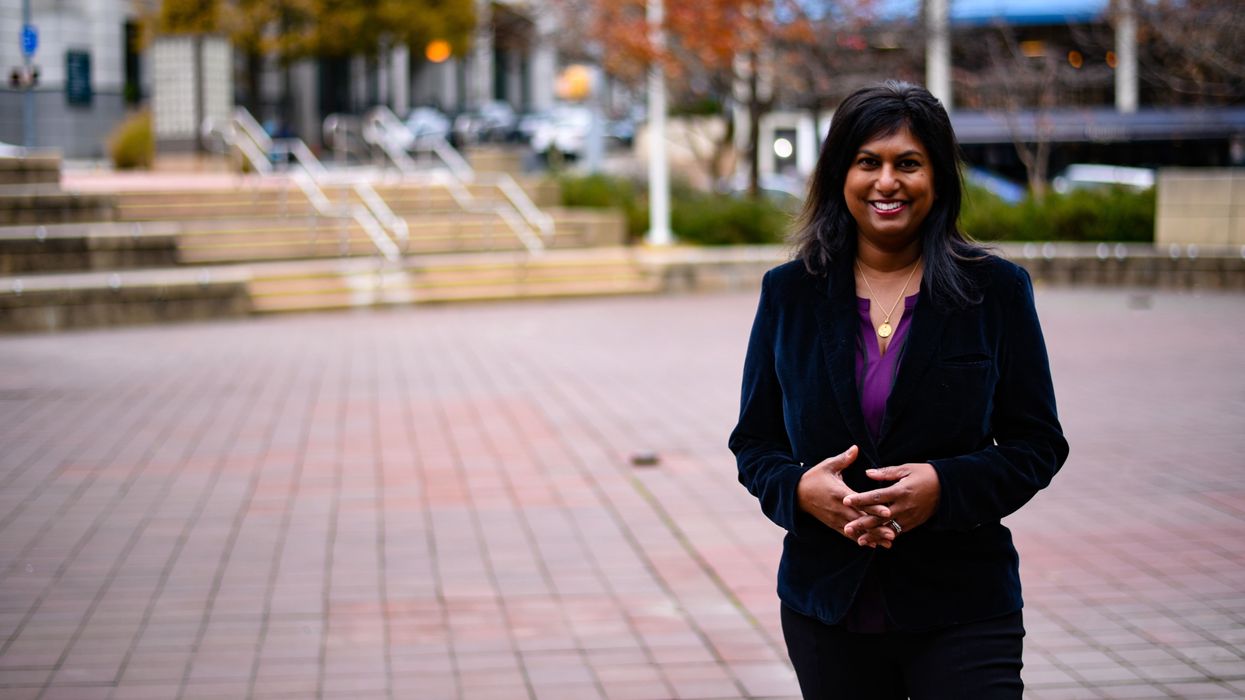Six of the most influential democracy reform groups are at the core of a new coalition, dubbed Fix the System, with the goal of putting more conservative and corporate muscle behind a cause that's generally dominated by progressives.
The effort comes at a time when many in the good governance movement worry their efforts are too diffuse and disconnected, and tilted too far left at a time of divided government. The hope is that, during a time of pandemic fear and economic distress, political polarization will ease enough to permit some good governance changes to muster bipartisan support.
The alliance has been in the works for months but was formally unveiled this week, along with its first public effort: getting Congress to include moneyto make voting easier and safer this year in the nearly $2 trillion coronavirus stabilization package.
"This pandemic shines a spotlight on the importance of protecting and safeguarding our democracy," said Nilmini Rubin, who is running the coalition. "The political foundations of the United States require maintenance and cannot be taken for granted."
Fix the System says a top priority will be recruiting business leaders and trade associations to advocate for proposals it views as capable of winning over Republicans as well as Democrats and independents: efforts to end partisan gerrymandering, improve civic education, combat foreign election interference, modernize election systems, bolster government oversight and ethics, reduce dysfunction in Congress, and increase campaign finance transparency.
"Current business practices are perpetuating political dysfunction that thereby threatens economic growth," said Daniella Ballou-Aares of the Leadership Now Projec t, a coalition member. "Business leaders — their expertise, their resources and their networks — can be a part of the solution to fix the system and help restore Americans' trust in our political leaders and institutions.
Tell Congress to protect our elections nowyoutu.be
Rubin was most recently an executive overseeing the energy and internet portfolios of Tetra Tech Inc., a California engineering and consulting firm. She previously spent a dozen years as a senior foreign policy staffer in both the Senate and the House and was on the National Security Council staff under President George W. Bush.
These are the eight charter members of the group, which have overlapping but not entirely aligned priorities on their own:
- RepresentUs, one of the first and now perhaps the biggest and best-financed organizations of its kind, focuses mainly on ballot initiatives and statehouse efforts to achieve the full spectrum of democracy reforms — from boosting government transparency and regulating lobbying to modernizing the election system and limiting money in politics.
- Unite America, which does its own good governance advocacy work and also provides funding to other groups working to reduce partisanship and has a political arm that donates to centrist candidates and democracy-reforming referendum campaigns.
- Issue One, which describes itself as the leading cross-partisan political reform group in Washington, relies on a cadre of former members of Congress from both parties to advocate for a similarly broad spectrum of proposals. (It also operates, but has no journalistic control over, The Fulcrum.)
- Stand Up Republic, mainly known for promoting governmental accountability and electoral reform on social media, was created after the 2016 election by Evan McMullen and his running mate Mindy Finn. Their "never Trump" independent presidential bid garnered half of 1 percent of the popular vote.
- Fix Us, which advocates for an array of democracy reforms as an arm of the Committee for a Responsible Federal Budget. That group views its goal of long-term federal fiscal discipline as impossible without first making Washington function better.
- Leadership Now Project, which was created by Harvard Business School alumni to bring an innovative corporate sensibility to fixing shortcomings in the political system.
- Center for the Study of the Presidency & Congress, which promotes improved leadership and expertise among people who work in the executive and legislative branches.
- The Lugar Center, a foreign policy and bipartisan governance think tank started by the late GOP Sen. Richard Lugar of Indiana.




















